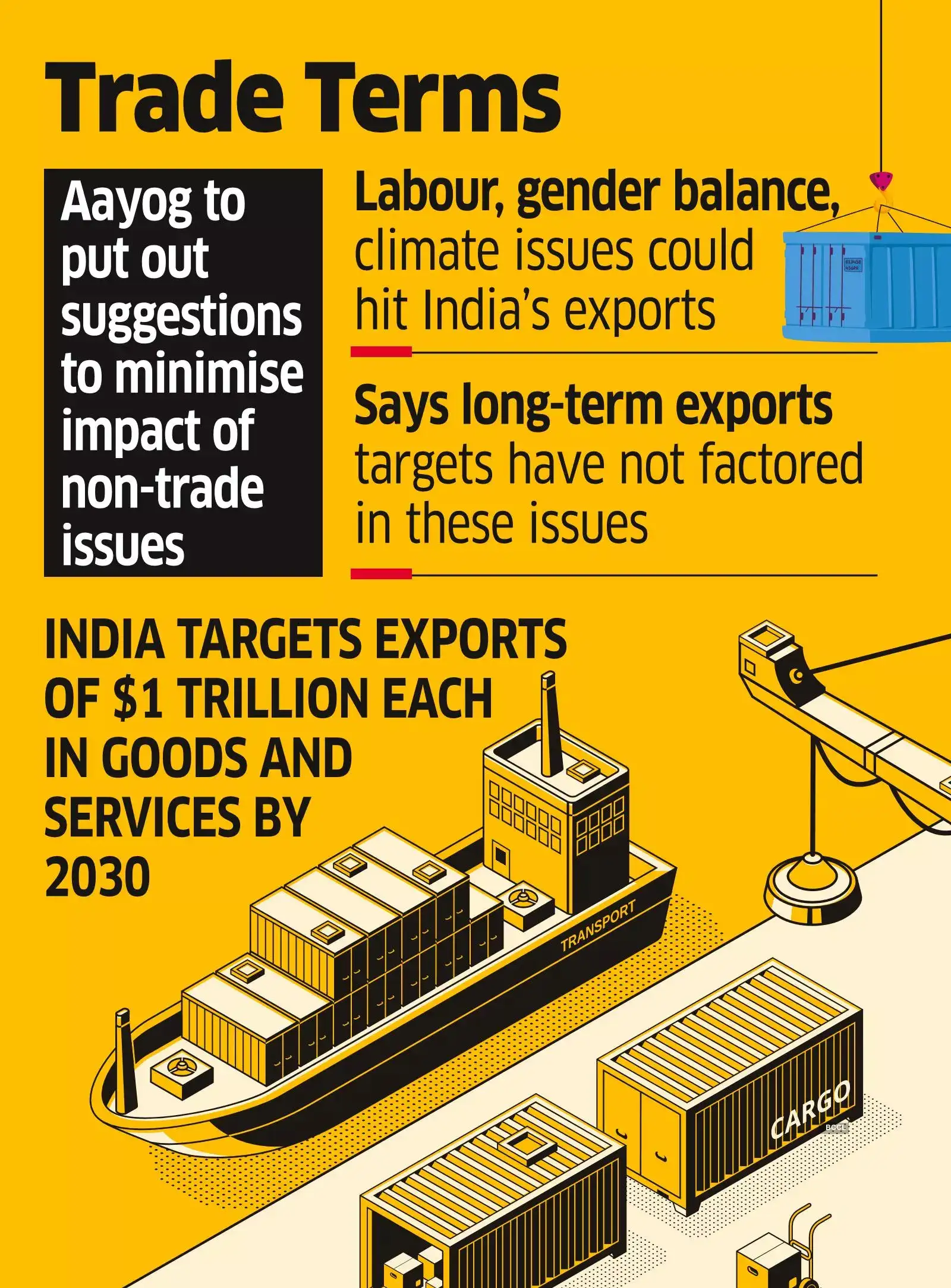NITI Aayog is holistically looking at these issues and their implications on exports and will soon firm up its recommendations to ensure India maintains its export growth momentum, a senior government official told ET.
India has set a target of exports of $1 trillion each in goods and services by 2030. The aim is to raise the country’s share of exports in global trade to 3% by 2027 and 10% by 2047 from the current 2.1%.
However, the Aayog is of the view that these targets have not factored in the impact of non-trade related issues which are increasingly becoming important.

“Going forward, the non-trade issues will play a significant role and the current set of growth projections in exports is largely based on demand for primary products and intermediates. Hence, the Aayog will come up with suitable recommendations to minimise their impact,” said the official, who did not wish to be identified.Citing the example of the US Inflation Reduction Act, which aims to establish green technology industries and the EU’s Carbon Border Adjustment Mechanism (CBAM), under which tax is levied on certain imports into the region, the official said there is a need for India to prepare itself for such challenges to avoid missing its long-term export targets.India and the EU are discussing the CBAM in the bilateral Trade and Technology Council and New Delhi has sought a mutual recognition agreement for carbon credits and a carve-out for its micro, small and medium enterprises under the mechanism.India has maintained that the World Trade Organization should not negotiate rules on non-trade-related issues such as climate change and gender, which legitimately fall within the domain of other intergovernmental organisations. It has already made submissions to the multilateral trade watchdog saying such issues are trade barriers.








